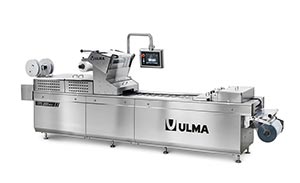Workforce
Worker shortage has processors scrambling to hire and keep good employees

With manufacturing short 2 million workers over 10 years, food and beverage processors are forced to rethink wages and recruiting practices, and try new ways to win employees’ loyalty.
Photo courtesy of Getty Images

Making a game out of policy initiatives is one way companies are trying to make work more pleasant for employees so they want to help the company succeed. Here Borden employees are learning about the Borden Difference, the dairy’s identity statement.
Photo courtesy of Borden

A Borden employee wins a vacation at the Elsie Awards, recognizing top performance by plants and individuals.
Photo courtesy of Borden

Helping with worker shortages: The Lyco Sanitary Zero-Maintenance screen was designed at the request of two big customers that had trouble finding people to clean them, says Jeff Zittel, vice president of technology. The CIP rotary drum floats in an oiled bed, eliminating daily lubrication of bearings. It can be enhanced with an advanced filtering system that removes more solids from screened water, making it clean enough to use a second time. Filters can be changed quickly.
Photo courtesy of Lyco

Helping with worker shortages: The Lyco Sanitary Zero-Maintenance screen was designed at the request of two big customers that had trouble finding people to clean them, says Jeff Zittel, vice president of technology. The CIP rotary drum floats in an oiled bed, eliminating daily lubrication of bearings. It can be enhanced with an advanced filtering system that removes more solids from screened water, making it clean enough to use a second time. Filters can be changed quickly.
Photo courtesy of Lyco





Evolving equipment for labor shortages
A closer look at Harpak-ULMA’s approach
OEMs are tailoring their machines to help food processors adapt to smaller workforces.
One way Harpak-ULMA packaging lines is trying to assist is through a new partnership with Rockwell Automation to allow smart, connected solutions that speed outcomes, minimize downtime and require less staff.

ULMA thermoformers now come with Rockwell production controls and information systems that are easier to troubleshoot.
Photo courtesy of Harpak-ULMA
As a member of the Rockwell PartnerNetwork, the company’s ULMA thermoformer lines now come with Rockwell production controls and information systems.
An open control system is easier to troubleshoot, and most food companies likely already have people trained on Rockwell, Harpak-ULMA President Kevin Roach says.
The control system allows employees on packaging lines to use augmented reality, through another collaboration with software maker PTC, for guided help with maintenance or to access 3D step-by-step instructions on mobile devices.
The guidance is important for maintaining workflows because people need varied amounts of time to learn something new, and their success differs depending on how difficult instructions are to read or how well they understand drawings, Roach says.
“We’ve come up with a method using augmented reality to overlay digital assets on our physical assets so that the instructions are so obvious that the efficacy of the individual goes way up, training time goes way down and the outcomes become near perfect,” he says. “This is a big thing that we’re doing about labor.”
Looking for a reprint of this article?
From high-res PDFs to custom plaques, order your copy today!











